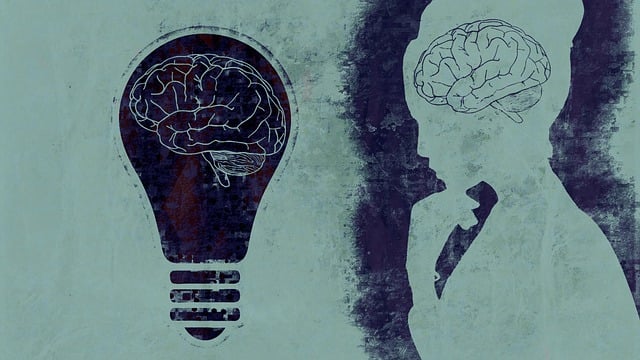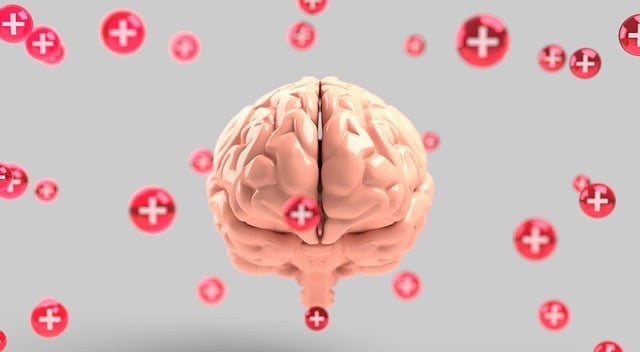The rising prevalence of Adult Functional Neurological Disorders (AFNDs) poses significant challenges in healthcare, with diverse symptoms impacting daily life due to factors like trauma and stress. Effective management demands a comprehensive strategy including tailored therapy, crisis intervention, anxiety relief, and trauma support. Increasing awareness, access to specialized care, and community outreach programs are crucial for enhancing the quality of life for those affected. Key focus areas include Therapy for Adults Functional Neurological Disorder, with strategic partnerships, mental wellness podcasts, caregiver education, flexible outreach strategies, cultural sensitivity, risk management planning, and tailored FND therapy empowering individuals to navigate community settings confidently. Evaluating program success goes beyond initial participation, utilizing tools like pre-post surveys and long-term well-being monitoring to assess genuine impact.
Community outreach programs play a pivotal role in addressing growing concerns surrounding adult functional neurological disorders (AFND). This article explores the profound impact of such initiatives on mental health support, offering valuable insights into effective implementation strategies. From understanding AFND to engaging communities and measuring success, we delve into proven approaches for enhancing access to therapy for adults affected by this complex condition.
- Understanding Adult Functional Neurological Disorders: A Growing Concern
- The Impact of Community Outreach Programs on Mental Health Support
- Strategies for Effective Implementation: Building a Supportive Network
- Engaging the Community: Overcoming Barriers and Encouraging Participation
- Measuring Success: Evaluating the Effectiveness of Outreach Initiatives
Understanding Adult Functional Neurological Disorders: A Growing Concern

The rise in Adult Functional Neurological Disorders (AFND) is a growing concern within the healthcare community. AFNDs, often misunderstood and misdiagnosed, manifest as a range of symptoms affecting daily functioning, including cognitive, physical, and emotional impairments. These disorders, which can arise from various factors like trauma, stress, or unknown causes, present unique challenges for individuals affected and their support systems.
Effective management requires a multifaceted approach, with therapy for adults with AFND tailored to address specific symptoms. Crisis intervention guidance, anxiety relief techniques, and trauma support services play pivotal roles in assisting those diagnosed. By increasing awareness and access to specialized care, communities can better equip themselves to navigate the complexities of AFNDs, fostering improved quality of life for affected individuals.
The Impact of Community Outreach Programs on Mental Health Support

Community outreach programs play a pivotal role in enhancing mental health support within communities, particularly for underserved populations. These initiatives aim to bridge the gap between individuals struggling with mental health issues and the resources they need. By bringing therapy for adults with functional neurological disorders directly to communities, outreach programs can significantly improve access to care. This is especially crucial in areas where specialized mental health services are scarce or difficult to reach.
Through public awareness campaigns development and interactive workshops, these programs educate community members about various aspects of mental health, including signs of distress and available support systems. Moreover, they foster a sense of belonging and encourage individuals to embrace self-care routine development for better mental health. By addressing stigmas and promoting understanding, community outreach can lead to early interventions and improved self-esteem improvement, ultimately enhancing the overall well-being of community members.
Strategies for Effective Implementation: Building a Supportive Network

Implementing community outreach programs requires a strategic approach to build a supportive network that addresses mental wellness concerns, such as those faced by individuals with Functional Neurological Disorders (FND). One key strategy is fostering partnerships with local healthcare providers and integrating them into the program’s core structure. This ensures that participants have access to specialized therapy for adults with FND, along with other mental health services, enhancing the overall effectiveness of the outreach initiative.
Additionally, leveraging resources like the Mental Wellness Podcast Series Production can amplify the reach and impact of these programs. By creating engaging content, these podcasts can educate a broader audience about FND and related topics, promoting cultural competency among healthcare providers through informative discussions. Equipping caregivers and supporters with knowledge on building resilience in individuals with FND is pivotal to fostering an inclusive and supportive community environment.
Engaging the Community: Overcoming Barriers and Encouraging Participation

Engaging communities is a pivotal aspect of successful outreach programs, especially when addressing specific health concerns like Functional Neurological Disorders (FND). Overcoming barriers to participation is essential for ensuring accessibility and inclusivity. Many individuals with FND may face challenges in engaging with community initiatives due to symptoms such as fatigue, cognitive difficulties, or social anxiety. Customizing outreach strategies to accommodate these needs is crucial. This can include offering flexible program times, providing one-on-one support, or utilizing digital platforms for remote participation.
Promoting cultural sensitivity in mental healthcare practice is a key strategy to encourage diverse communities’ involvement. Understanding the unique cultural perspectives and practices within the community fosters trust and acceptance. Additionally, risk management planning for mental health professionals is vital to ensuring safe and supportive environments. Implementing social skills training can empower individuals with FND to navigate community settings confidently, enhancing their overall well-being.
Measuring Success: Evaluating the Effectiveness of Outreach Initiatives

Evaluating the success of community outreach programs is paramount to understanding their true impact and effectiveness. When implementing initiatives aimed at promoting mental health awareness, such as therapy for adults with functional neurological disorders, it’s crucial to go beyond mere participation. Metrics like increased attendance at stress management workshops or higher enrollment in resilience-building courses can indicate interest and initial engagement.
However, deeper assessment is required to gauge genuine impact. This could involve measuring changes in emotional intelligence through pre-post surveys or tracking improvements in overall well-being over time. By utilizing these evaluation methods, organizations can ensure their outreach efforts are not only reaching but also profoundly affecting the community they serve, fostering a more resilient and emotionally intelligent society.
Community outreach programs play a pivotal role in addressing Adult Functional Neurological Disorders (AFND), offering much-needed mental health support. By implementing strategies that foster engagement and collaboration, we can build supportive networks that enhance access to therapy for AFND. Overcoming barriers to participation is crucial, ensuring that these initiatives reach those most affected. Measuring success through comprehensive evaluations allows us to refine and optimize outreach efforts, ultimately improving outcomes for individuals navigating the challenges of AFND.














